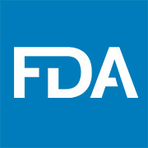The Future of Food: Navigating the Battle Between Innovation and Tradition
February 28, 2025, 10:18 pm
The American food landscape is shifting. The rise of ultra-processed foods (UPFs) has sparked a revolution. Consumers are questioning what they eat. They want healthier options. They want transparency. Amid this turmoil, synthetic biology (synbio) foods are emerging as a potential solution. But can they win the trust of wary consumers?
Ultra-processed foods have become the villains in our dietary narrative. They are everywhere, lurking in grocery aisles and fast-food menus. Over half of Americans’ caloric intake comes from these foods. This is not just a statistic; it’s a cultural crisis. UPFs have been engineered to be cheap and convenient. They have fed a growing population but at a steep health cost. Chronic diseases are on the rise. The need for change is urgent.
Policymakers are responding. California is leading the charge. Governor Gavin Newsom’s executive order aims to restrict UPF purchases. Warning labels may soon adorn these products. This could set a national precedent. The scrutiny is intensifying. But what does this mean for synbio foods?
Synthetic biology is not just another form of UPF. It represents a new frontier in food production. Synbio foods are engineered with precision. They promise health benefits and sustainability. However, they risk being lumped in with the very products they aim to replace. The challenge is clear: synbio must carve out its identity.
The perception of synbio is critical. If consumers see it as just another processed food, it will struggle. Synbio foods must be positioned as a distinct category. They should focus on health, sustainability, and innovation. This requires rigorous nutritional research and clear communication. Transparency is key. Synbio companies must educate consumers about their products. They need to demonstrate that these foods are not just safe but beneficial.
Consumer skepticism looms large. Many view cultured meat and synbio innovations as unnatural. This perception can hinder acceptance. Studies show that while younger consumers are more open to these innovations, many remain wary. The challenge is to shift this mindset. Synbio must prove its worth. It must show that it can deliver on taste, price, and health.
Sustainability alone will not sell synbio foods. The market is driven by taste and health. If synbio cannot provide a compelling value proposition, it risks being dismissed. The message must be clear: synbio is not just about sustainability; it’s about improving health outcomes.
The battle against UPFs is not just about rejecting the old. It’s about embracing the new. Synbio has the potential to offer scalable, climate-efficient solutions. It can address the needs of a global population while prioritizing health. But this requires a shift in communication. Synbio must be seen as a forward-thinking solution, not just another industrial food.
The myths surrounding food ingredients also complicate the landscape. Take sunflower oil, for example. Misinformation abounds. Some claim it causes inflammation. Others argue it lacks nutritional value. Yet, studies show otherwise. Sunflower oil is rich in monounsaturated fats and vitamin E. It is heart-healthy and stable for cooking. This is a prime example of how misinformation can cloud consumer choices.
Food manufacturers face tough decisions. They must navigate consumer trends while combating myths. The challenge is to provide accurate information. They need to highlight the benefits of U.S.-grown sunflower oil. It is non-GMO, sustainable, and versatile. It works well in various formulations, from snacks to plant-based products. This is the kind of clarity consumers crave.
As the food landscape evolves, so must the messaging. Synbio companies need to embrace transparency. They must invest in nutritional studies and safety research. Without robust data, gaining consumer trust will be an uphill battle. The companies that prioritize scientific rigor will lead the way.
The future of food is at a crossroads. The backlash against UPFs is forcing a cultural shift. Synbio has the opportunity to redefine what we eat. It can become a legitimate solution for healthier diets. But it must act decisively. The narrative must change. Synbio must not only compete with UPFs but also challenge the very system that allowed them to thrive.
In this battle, the stakes are high. The health of millions hangs in the balance. The food industry must adapt. It must innovate. The future of food is not just about what we eat; it’s about how we eat. It’s about trust, transparency, and health. Synbio has the potential to lead this charge. But it must prove itself worthy. The time for action is now. The future of food depends on it.
Ultra-processed foods have become the villains in our dietary narrative. They are everywhere, lurking in grocery aisles and fast-food menus. Over half of Americans’ caloric intake comes from these foods. This is not just a statistic; it’s a cultural crisis. UPFs have been engineered to be cheap and convenient. They have fed a growing population but at a steep health cost. Chronic diseases are on the rise. The need for change is urgent.
Policymakers are responding. California is leading the charge. Governor Gavin Newsom’s executive order aims to restrict UPF purchases. Warning labels may soon adorn these products. This could set a national precedent. The scrutiny is intensifying. But what does this mean for synbio foods?
Synthetic biology is not just another form of UPF. It represents a new frontier in food production. Synbio foods are engineered with precision. They promise health benefits and sustainability. However, they risk being lumped in with the very products they aim to replace. The challenge is clear: synbio must carve out its identity.
The perception of synbio is critical. If consumers see it as just another processed food, it will struggle. Synbio foods must be positioned as a distinct category. They should focus on health, sustainability, and innovation. This requires rigorous nutritional research and clear communication. Transparency is key. Synbio companies must educate consumers about their products. They need to demonstrate that these foods are not just safe but beneficial.
Consumer skepticism looms large. Many view cultured meat and synbio innovations as unnatural. This perception can hinder acceptance. Studies show that while younger consumers are more open to these innovations, many remain wary. The challenge is to shift this mindset. Synbio must prove its worth. It must show that it can deliver on taste, price, and health.
Sustainability alone will not sell synbio foods. The market is driven by taste and health. If synbio cannot provide a compelling value proposition, it risks being dismissed. The message must be clear: synbio is not just about sustainability; it’s about improving health outcomes.
The battle against UPFs is not just about rejecting the old. It’s about embracing the new. Synbio has the potential to offer scalable, climate-efficient solutions. It can address the needs of a global population while prioritizing health. But this requires a shift in communication. Synbio must be seen as a forward-thinking solution, not just another industrial food.
The myths surrounding food ingredients also complicate the landscape. Take sunflower oil, for example. Misinformation abounds. Some claim it causes inflammation. Others argue it lacks nutritional value. Yet, studies show otherwise. Sunflower oil is rich in monounsaturated fats and vitamin E. It is heart-healthy and stable for cooking. This is a prime example of how misinformation can cloud consumer choices.
Food manufacturers face tough decisions. They must navigate consumer trends while combating myths. The challenge is to provide accurate information. They need to highlight the benefits of U.S.-grown sunflower oil. It is non-GMO, sustainable, and versatile. It works well in various formulations, from snacks to plant-based products. This is the kind of clarity consumers crave.
As the food landscape evolves, so must the messaging. Synbio companies need to embrace transparency. They must invest in nutritional studies and safety research. Without robust data, gaining consumer trust will be an uphill battle. The companies that prioritize scientific rigor will lead the way.
The future of food is at a crossroads. The backlash against UPFs is forcing a cultural shift. Synbio has the opportunity to redefine what we eat. It can become a legitimate solution for healthier diets. But it must act decisively. The narrative must change. Synbio must not only compete with UPFs but also challenge the very system that allowed them to thrive.
In this battle, the stakes are high. The health of millions hangs in the balance. The food industry must adapt. It must innovate. The future of food is not just about what we eat; it’s about how we eat. It’s about trust, transparency, and health. Synbio has the potential to lead this charge. But it must prove itself worthy. The time for action is now. The future of food depends on it.

